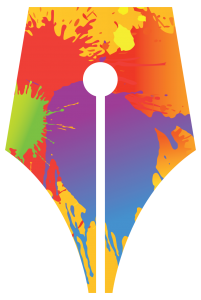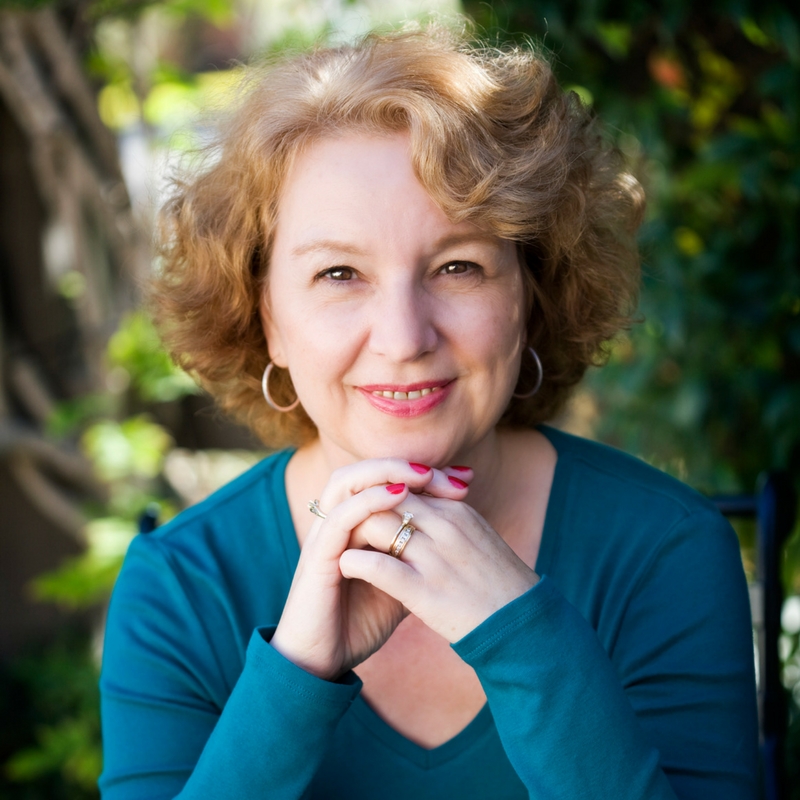This month, we’re interviewing Marilyn Hilton about her book, Full Cicada Moon. Marilyn talks to us about her writing process, her inspiration for the book, and how she chose to deal with a delicate topic with “wonder and terror and awe.”
Keep reading! As always, we’ve got a writing challenge for you, a fantastic interview, and some updates about Society of Young Inklings. Want to catch up? Check out last month’s Ink Splat here.

Writing Challenge
This week’s challenge comes straight from Marilyn: To start a writing session, I often set a timer and write as fast as I can, about something on my mind, a scene, or an idea. Ten minutes is a good sprint, as it’s long enough for my mind to move into a creative zone. And by the time ten minutes is up, I want to keep writing.
Submit your responses by emailing submit@younginklings.org and you might be published on our website!
An Interview with author Marilyn Hilton
Full Cicada Moon is written in verse, but you have also written previous novels in prose. How do you choose which style to write in? What impact do you think this style choice has on readers?
The character, the character’s situation and personality, and the tone of the story have dictated how I tell the story. My first novel, Found Things, was written in first-person point of view and present tense. It was just the way that story needed to be told, and how River (the main character) needed to tell it. But Full Cicada Moon is more introspective and closer to the tender places in the main character, Mimi, so telling her story in free verse felt just right for her. Verse has an intimacy and immediacy that can take the reader deep into the story and the heart of the character. And the arrangement of lines on the page allow the reader to provide unsaid words and unstated thoughts and feelings better, I think, than prose.
In the book I’m writing now, two characters tell their stories—one in prose and the other in free verse. Each style suits the particular character.
In the acknowledgments of Full Cicada Moon you write, “I wrote Mimi’s story in wonder and terror and awe, not knowing if I could or should write it.” Why did you write it, and why did you question whether you should?
I wanted to write a story about a mixed-race girl who wanted to be an astronaut at a time when girls weren’t encouraged to pursue scientific careers. My children are mixed race and have never known a time when they couldn’t have the career they aspire to. But there were no books with a character like them or a story like theirs, so I decided to write it. Actually, because of them, I felt compelled to write it. But I knew I would need to approach the story with much respect, and as a quiet and observant guest in Mimi’s world.
What’s the most difficult part of your creative process? Most surprising?
The most difficult part for me is having the courage to sit down and write—to create something out of nothing—and believe that even bad writing has value, because the practice brings me closer to good writing. I’ve been writing for years, but that fear is always present. Over time, though, I’ve come to understand that the fear is part of the creative process, and have learned to push through it and write anyway.
The most surprising part of the creative process are those moments when inextricable beauty flows from me, through my fingers, and onto the page. And that is joyous! It surprises me because I never plan it—it just comes from somewhere deep inside. Those are often the passages that readers connect with most strongly. And a story is complete not when I’ve finished writing it but when reader’s heart responds to what I’ve written.
What do you think is the most common misconception about publishing?
One common misconception is that the first draft is the final draft and ready for publication. The first draft is only the beginning. Most manuscripts go through several revisions before they’re ready to be sent to an agent or editor, or to be self-published. Recently I read something like this about revision: a book is never finished; you just have to know when to stop revising it.
If you could tell your younger writer self something, what would it be?
Ever since I can remember, I’ve wanted to be a writer. But when I was younger, I didn’t always honor that call. I spent a lot of time not writing, worrying about not writing, thinking about writing, and procrastinating instead of writing. Much of my not-writing was caused by fear (see above!). I would now tell my younger self to have faith in what my heart tells me, have the courage to try—even if it means failing—have the fortitude to persist, have confidence in my ability, and have the humility to learn from those who can teach me. And, finally, something that Mimi’s science teacher tells Mimi in Full Cicada Moon:
“Our dreams are a serious matter.
When you take them seriously,
everyone else does too.”
Society of Young Inklings News

- The Inklings Book Contest is here! Submit your work by March 15. We can’t wait to read it!
- Confused, lost, frustrated, miserable … these are not productive ways to feel! Still, stuck happens, no matter how creative you are. That’s why we invented the Idea Storm. This online masterclass will help lead you to “Eureka!” moments.
- Are you in the Bay Area? If so, we hope you’ll join us for our Launch Your Novel Workshop. Click the link to learn more.
- Join our society! We’ll send you a FREE Inklings Starter Kit with tips and tricks personalized to your creativity style.
A special thanks to Marilyn Hilton!
 Marilyn Hilton is the author of two novels and two nonfiction books. She has also published numerous articles, devotions, short stories, and poems in literary and consumer magazines, and has contributed to various compilations. Her work has won awards including the Asian/Pacific American Award for Literature, a Jane Addams Peace Association Children’s Honor Book Award, the Sue Alexander Award, and the Associated Writing Programs Intro Journals Award. She holds a MA in English/Creative Writing and has worked for several years in the computer software industry as a technical writer and editor.
Marilyn Hilton is the author of two novels and two nonfiction books. She has also published numerous articles, devotions, short stories, and poems in literary and consumer magazines, and has contributed to various compilations. Her work has won awards including the Asian/Pacific American Award for Literature, a Jane Addams Peace Association Children’s Honor Book Award, the Sue Alexander Award, and the Associated Writing Programs Intro Journals Award. She holds a MA in English/Creative Writing and has worked for several years in the computer software industry as a technical writer and editor.
Visit her website here and grab your copy of Full Cicada Moon here.


